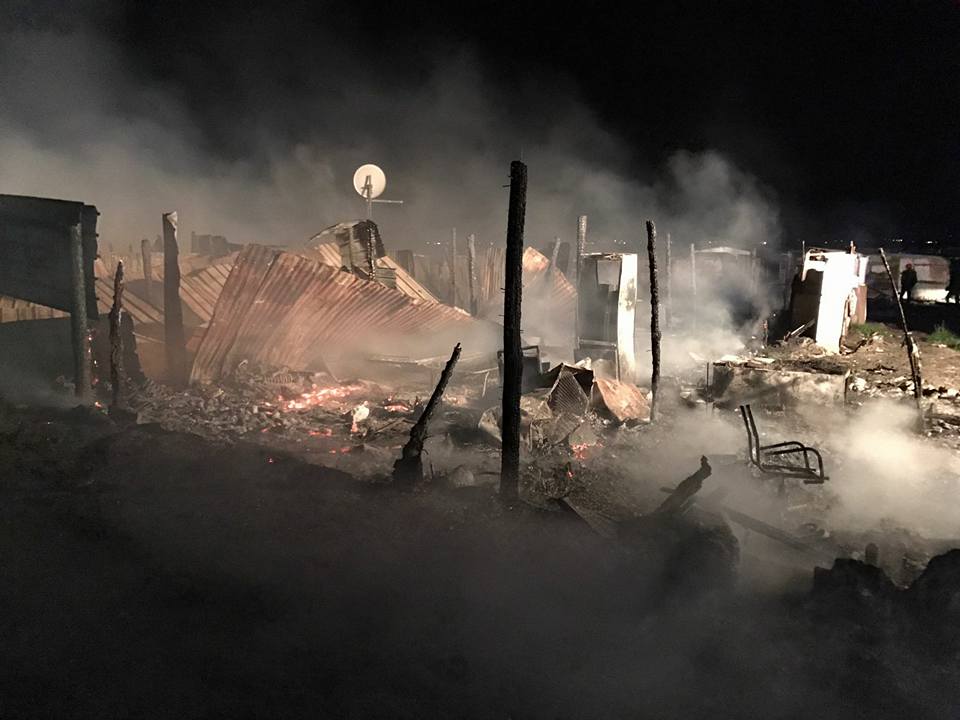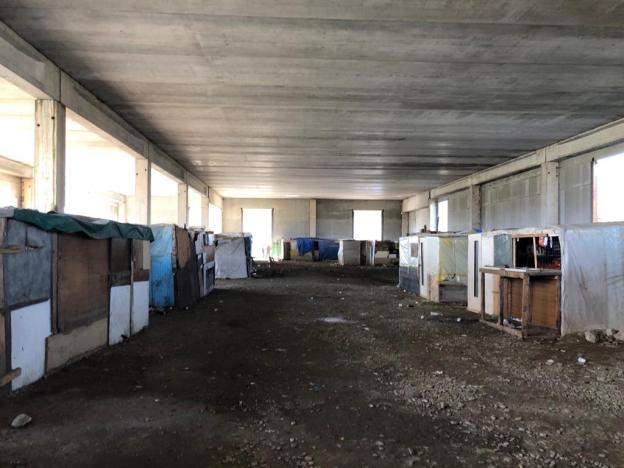Another tragedy has affected African labourers in Italy’s plains this month. On 6 March, bulldozers demolished the San Ferdinando workers’ ghetto, located in the centre of Calabria’s orange plantations and Calabria’s Ndrangheta organized crime stronghold. The ghetto, which has claimed the lives of three people over the last year, had become a thorn in the eye of Italy’s Interior Minister, Matteo Salvini, who has ordered the erection of a tent camp as well as a restoration of public order in the area.
In 2011 the research team Bitter Oranges recorded living conditions in San Ferdinando in this video.

The eviction of San Ferdinando (close to Rosarno, which has been termed one of Italy’s new slavery sites) forms part of Italy’s interior minister’s promise to move “from words to actions.” Matteo Salvini is also the head of the right populist League party, whose members are currently establishing an institutional alliance with the European Far Right. Since his election he has repeatedly declared his intention to “raze to the ground” Italy’s shantytowns, including Rom and refugee settlements. Over the last year, more than a dozen such camps have been demolished, including the Baobab Experience in Rome, which hosted over hundreds of refugees and asylum seekers, as well as various Sinti and Rom settlements around Turin, Pisa and the Italian capital.
The official motivation for the eviction has been one of insecurity and a lack human dignity. But the Caritas settlement does not appears to offer much of an alternative. On 22 March, another person died in its tent camp situated only a few meters away from the old ghetto. The victim’s name is Sylla Nouma, a man in his thirties. “We hoped not to deplore situations like this any more,” the mayor Andrea Tripodi declared to the press. “It was an unexpected tragedy,” Vincenzo Alampi, the local Caritas director added. Although the causes of the fire are still be ascertained, a possible reason might have been a short circuit departing form the electric wires located in the corner of the tent.
The government-directed evictions, which Matteo Salvini systematically calls “appointments with legality”, particularly appear to target precarious workers’ settlements located in the heart of Southern Italy’s vegetable and fruit plantations nowadays. After the forced eviction of Rignano Garganico and Boreano last year (both situated in the tomato districts of Foggia and the Alto Bradano), the bulldozers have started moving to the South now. Last May local authorities destroyed the informal labour settlement of Campobello di Mazara, in Sicily –leaving workers no choice but to occupy new buildings: while 128 inhabitants were haphazardly hosted in a camp managed by the Red Cross, others have started to erect smaller settlements in the periphery of neighbouring Castelveltrano, in the heart of Sicily’s olive plantations. A similar fate now awaits San Ferdinando’s settlers. At the time of the eviction, the local prefect estimated the number of slum residents at 1.592 people, according to the Repubblica newspaper. While 200 were immediately transferred to official migrant reception centres, around 900 found temporary accommodation a new tent camp managed by Caritas. Local authorities have announced 30 housing units to accommodate future migrants coming to the area. But the mayor has repeatedly warned against housing migrants without also providing for local residents in this area stricken by poverty and criminality. In the meantime, the Interior Ministry has promised 350.000 euro’s to “restore liveability” in the area of San Ferdinando.
The official motivation for the eviction has been one of insecurity and a lack human dignity. But the Caritas settlement does not appears to offer much of an alternative. On 22 March, another person died in its tent camp situated only a few meters away from the old ghetto. The victim’s name is Sylla Nouma, a man in his thirties. “We hoped not to deplore situations like this any more,” the mayor Andrea Tripodi declared to the press. “It was an unexpected tragedy,” Vincenzo Alampi, the local Caritas director added. Although the causes of the fire are still be ascertained, a possible reason might have been a short circuit departing form the electric wires located in the corner of the tent.

Because of pervasive uncertainty and a lack of consideration by official policies, more and more migrants now have started to move to other vegetable and fruit plantations in the area. Last month, some West African migrants already found refuge in a previous industrial plant in the plains of Metaponto, in neighbouring Basilicata, where the strawberry harvest is currently happening at full speed. Local associations are currently assisting the squatters with social and health services in the absence of official lodging facilities. Most likely, the slum will experience the same fate in a couple of months, when strawberries will have been picked, and the tomato planting season will begin once again in Foggia and Basilicata.

